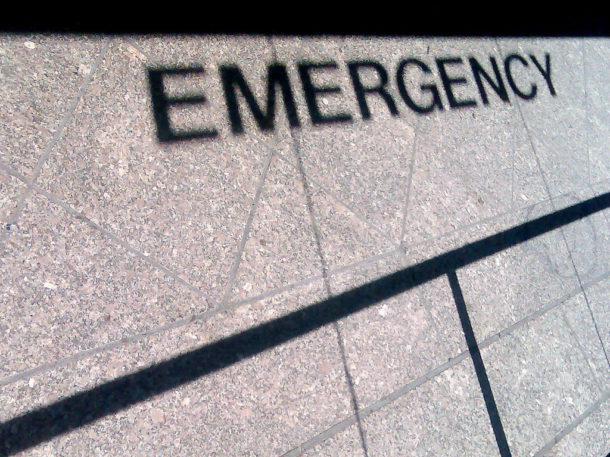By offering more short-term stay services, skilled nursing facilities could help keep spousal caregivers from dropping their partners off at the emergency department as a source of respite, a phenomenon known in some medical circles as “pop drop.”
That’s according to a new University of Michigan study in the Aug. 24 edition of the Journal of the American Geriatrics Society. The study looked at Medicare-linked data from the biennial Health and Retirement Study (HRS) between 2000 and 2012 for 3,101 married couples aged 65 and older, where one spouse acted as a caregiver for their partner with a disability.
Researchers found that spouses who were more fatigued while actively caregiving saw higher health care costs and took their spouses to the emergency department 23% more than their non-fatigued counterparts over the course of six months.
“It’s often from [spousal] caregivers who are totally burned out or overwhelmed, and I think some of it is a desperation for respite services and respite help,” Dr. Claire Ankuda, the study’s lead author, told Skilled Nursing News. “If you are coming from a place of extreme fatigue and emotional distress, you’re going to be less well-equipped to deal with that at home.”
When a spouse provides care while fatigued, the Medicare costs for the person receiving care are roughly $8,000 higher over the course of a year, Ankuda noted.
“If we’re already spending $8,000 more, maybe we could spend more money supporting caregivers and offset some of those costs,” she adds.
One way to help lessen the burden — and take better care of seniors — would be more resources for spousal caregivers to avoid burnout. That could mean hiring a professional home health aide or using the Medicare-funded hospice benefit.
Another solution could lie in making more resources available for skilled nursing facilities to help supplement that care.
Because Medicare only pays for skilled care after an older adult spends three days in a hospital, tired caregivers could see an emergency room visit as a way to access institutional care.
“Imagine, for example, if Medicare had a respite benefit that would allow admission to a SNF for respite without requiring the hospital stay,” Ankuda says. “This might looks similar to the ‘respite benefit’ that patients in hospice get, allowing them an optional stay (maximum of 5 days per benefit period) at some hospice facilities, hospitals or SNFs, if needed, to relieve caregivers.”
Written by Tim Regan



